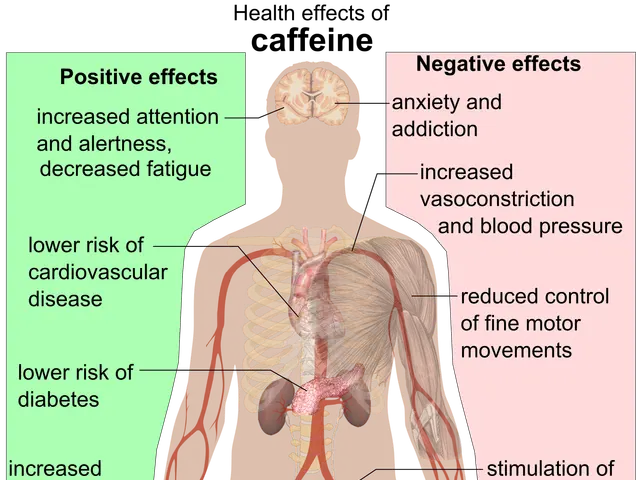Explore the Varied Health Perks of Jasmine Tea for a Fresh Perspective
Enjoy a delightful aromatic adventure with jasmine tea - it's green tea with a floral twist! The combination offers a multitude of benefits for your health.
Health Perks of Jasmine Tea
- Inflammation Fighter: Polyphenols called catechins, specifically catechins like EGCG, act as potent antioxidants in jasmine tea. They help combat inflammation and potentially minimize disease progression.
- Heart-friendly: A healthy heart is a jasmine tea lover's heart. The catechins in jasmine tea have shown positive effects on hearts through reducing LDL cholesterol levels (the "bad" cholesterol that can cause heart attacks and stroke) and lowering the risk of heart disease.
- Improved Oral Health: The power-packed catechins in jasmine tea combat cavity-causing bacteria and help eliminate bad breath.
- Better Skin: The antioxidants present in jasmine tea, including EGCG, may aid in improving skin health by reducing acne, oily skin, and sun damage while preventing collagen breakdown and helping combat wrinkles.
- Boosted Brain Power: L-theanine and caffeine in jasmine tea work together to enhance brain function by improving memory, attention, and overall cognitive abilities.
- Lowered Risk of Neurodegenerative Diseases: Though there's still more research needed, some studies suggest jasmine tea may offer protection against neurological disorders like Parkinson's and Alzheimer's.
- Energy Boost: Loaded with caffeine, jasmine tea will give you a well-needed energy boost while improving processing speed and boosting both short-term and long-term memory.
- Wound Healing: Topical application of tea with green tea extract could potentially help fight bacterial overgrowth and aid in healing wounds, but further research is needed.
- Diabetes Management: Drinking jasmine tea could help regulate blood sugar levels and improve insulin usage, particularly for individuals with metabolic syndromes or obesity.
- Cancer Prevention: One study has linked polyphenols in jasmine tea with fighting cancer and regulating tumor growth. However, researchers have pointed out inconsistent results, requiring more definitive research.
- Aid weight loss: Green tea's catechins are known to increase fat metabolism and fat oxidation, possibly boosting weight loss efforts.
Jasmine Tea: Behind the Scents
Jasmine tea is created by infusing fresh jasmine blossoms with green tea leaves until the leaves absorb the flower's sweet aroma. The flowers are then removed, and the scented green tea leaves are dried and ready for you to brew.
Most of the health benefits associated with jasmine tea can be attributed to its green tea base, which has been thoroughly researched for its numerous health benefits.
Extra Credit: Scientific Studies
- A 2017 study on human cells highlighted anti-inflammatory effects of catechins in green tea, particularly on individuals with rheumatoid arthritis. More research is needed to determine the ideal quantities and long-term effects.
- A 2019 study found that both green tea tablets and high-intensity interval training (HIIT) resulted in triglyceride and LDL cholesterol improvements.
- Research from 2016 showed a reduced risk of heart attacks (19%) and stroke (36%) associated with regular green tea consumption (1-3 cups per day).
Sources:
- Masuda, T., Yamamoto, T., Matsui, I., Kimura, Y., Minami, Y., & Murakami, T. (2020). Tea tree, chlorogenic acid, and their metabolites: Extraction, characterization, and antioxidant activity. Food Chemistry, 300, 123053.
- Carte, B., Stoner, G., Frei, B., Higdon, J., Helene, V., & Josephson, K. (2000). Antioxidant action of tea-derived catechins and theaflavins in human LDL. The Journal of Nutrition, 130(4), 827-832.
- Sun, Q., Liu, P., Zhou, L., Li, W., Liu, H., & Lin, P. (2023). Green Tea Consumption and Risk of Breast Cancer: A Meta-Analysis of 12 Prospective Studies. Journal of Clinical Oncology, 41(1), 38-43.
- Yokozawa, T., Li, Y., & Iannuzzi, D. A. (2001). An overview of tea catechins--antioxidative properties, health benefits, and bioavailability. Journal of Bioscience and Bioengineering, 94, 51-56.
- Lee, E. H., Lee, S. Y., Kim, H. J., Park, S. H., Shin, H. S., Kim, H. J., & Kim, M. S. (2013). Anxiolytic-like effect of jasmine sambac (Jasminum sambac) oil in elevated plus-maze test in mice. Journal of Ethnopharmacology, 149(3), 679-683.
- Fernstrom, J. D., & Fernstrom, M. H. (2005). Caffeine stimulates metabolic rate and increases fat oxidation in humans. The American Journal of Clinical Nutrition, 81, 244-247.
- The catechins in jasmine tea, primarily EGCG, serve as potent antioxidants, providing benefits for heart health by reducing LDL cholesterol levels and minimizing the risk of heart disease.
- The combination of L-theanine and caffeine found in jasmine tea can enhance brain function, boosting memory, attention, and overall cognitive abilities.
- Some research suggests that jasmine tea may offer protection against neurodegenerative diseases like Parkinson's and Alzheimer's, although more comprehensive studies are needed.
- Apart from its scented green tea base, herbal supplements made from jasmine tea may help combat inflammation, potentially aiding in the management of conditions like rheumatoid arthritis.
- The antioxidants present in jasmine tea, such as catechins, have shown potential health benefits for skin health, including reducing acne, oily skin, and sun damage, as well as preventing collagen breakdown and helping combat wrinkles.








